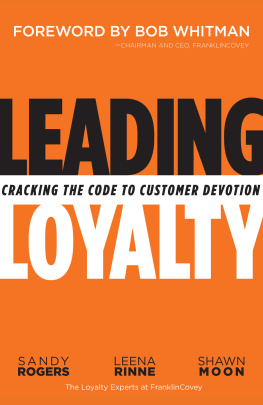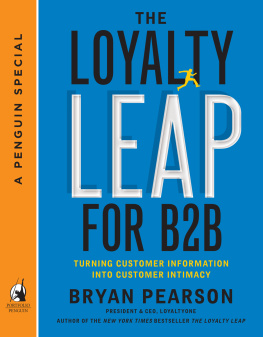Interactional Justice
Interactional Justice explores how defence lawyers accomplish their role in interaction with others and highlights the ways in which they do loyalty work constructing and conveying loyalty in emotionally and interactionally constraining situations.
By drawing on extensive ethnographic fieldnotes and interviews with lawyers, this sociological study brings their loyalty work to life and reveals to the reader the unwritten rules of emotional interactions. It presents how defence lawyers socially construct their duty of loyalty by negotiating informal and implicit professional and social expectations. This accomplishment demands emotion work and face work in order to perform a role which includes defending clients accused of heinous crimes and losing the majority of cases. As the defence team is central to this, the ways of doing teamwork are illustrated. Teamwork is also found to be essential between legal professionals to ensure that a criminal trial runs smoothly. All of this takes place within an overarching framework the emotional regime of law which aims to uphold the illusionary dichotomy between rationality and emotionality thus quietening the role of emotions.
Loyalty and teamwork are features of many professions, workplaces, and aspects of social life making this book an essential tool for understanding strategies for their accomplishment. Focusing on courtroom emotions and interactions, the book suggests how trials can be made more user-friendly and provides guidance for newly qualified legal professionals. The use of ethnographic fieldnotes and interviews provides scholars and students in the social sciences, teaching, law, and medicine with a colourful monograph which reveals and explains emotion and interaction rules. It also makes this book a useful tool for teaching and understanding qualitative research methods.
Lisa Flower is a researcher and senior lecturer in sociology and criminology at Lund University, Sweden. Her research interests include the hidden emotion and interaction rules in courtrooms and the legal profession.
Routledge Studies in the Sociology of Emotions
Mary Holmes is a senior lecturer at the University of Edinburgh, UK
Julie Brownlie is a senior lecturer at the University of Edinburgh, UK
The sociology of emotions has demonstrated the fundamental and pervasive relevance of emotions to all aspects of social life. It is not merely another specialized sub-discipline; rather it aims to reconfigure bases of mainstream sociology. This book series will not only be of interest for specialists in emotions but to sociology at large. It is a locus for developing enhanced understandings of core problems of sociology, such as power and politics, social interactions and everyday life, macro-micro binaries, social institutions, gender regimes, global social transformations, the state, inequality and social exclusion, identities, bodies, and much more.
Love and Society
Special Social Forms and the Master Emotion
Swen Seebach
The Emotional Market
Capitalism, Consumption and Authenticity
Edited by Eva Illouz
Emotions in Late Modernity
Edited by Roger Patulny; Alberto Bellochi; Sukhmani Khorana; Rebecca Olson; Jordan McKenzie and Michelle Peterie
Love as a Collective Action
Latin America, Emotions and Interstitial Practices
Adrian Scribano
Interactional Justice
The Role of Emotions in the Performance of Loyalty
Lisa Flower
For more information about this series, please visit: https://www.routledge.com/sociology/series/RSSE
Interactional Justice
The Role of Emotions in the Performance of Loyalty
Lisa Flower
First published 2020
by Routledge
2 Park Square, Milton Park, Abingdon, Oxon OX14 4RN
and by Routledge
52 Vanderbilt Avenue, New York, NY 10017
Routledge is an imprint of the Taylor & Francis Group, an informa business
2020 Lisa Flower
The right of Lisa Flower to be identified as author of this work has been asserted by her in accordance with sections 77 and 78 of the Copyright, Designs and Patents Act 1988.
All rights reserved. No part of this book may be reprinted or reproduced or utilised in any form or by any electronic, mechanical, or other means, now known or hereafter invented, including photocopying and recording, or in any information storage or retrieval system, without permission in writing from the publishers.
Trademark notice : Product or corporate names may be trademarks or registered trademarks, and are used only for identification and explanation without intent to infringe.
British Library Cataloguing-in-Publication Data
A catalogue record for this book is available from the British Library
Library of Congress Cataloging-in-Publication Data
Names: Flower, Lisa, author.
Title: Interactional justice: the role of emotions in the performance of loyalty / Lisa Flower.
Description: First Edition. | New York: Routledge, 2019. | Series: Routledge studies in the sociology of emotions | Based on authors thesis (doctoral Lund University, 2018) issued under title: Loyalty work: emotional interactions of defence lawyers in Swedish courtrooms. | Includes bibliographical references and index.
Identifiers: LCCN 2019033714 (print) | LCCN 2019033715 (ebook) | ISBN 9780367248796 (hardback) | ISBN 9780429284854 (ebook)
Subjects: LCSH: Defense (Criminal procedure)SwedenPsychological aspects. | Criminal defense lawyersSwedenPsychology. | Loyalty. | Emotions.
Classification: LCC KKV4630.D43 F572019 (print) | LCC KKV4630.D43 (ebook) | DDC 345/.07dc23
LC record available at https://lccn.loc.gov/2019033714
LC ebook record available at https://lccn.loc.gov/2019033715
ISBN: 978-0-367-24879-6 (hbk)
ISBN: 978-0-429-28485-4 (ebk)
Typeset in Bembo
by Deanta Global Publishing Services, Chennai, India
For Martin, Daisy and Harriet
In loving memory of Alex and Nanny Strawberry
Contents
First and foremost, I would like to acknowledge Malin kerstrm and David Wsterfors who supervised my doctoral thesis upon which this book is based and who have been my sources of inspiration throughout. My thanks also go to sa Wettergren, Stina Bergman Blix, Terry Maroney, Susan Bandes, Susie Scott, Helena Flam, Carl-Gran Heidegren and Ann-Mari Sellerberg for their support and expert enthusiasm, feedback and advice.
Thank you to my mum, dad and sister as well as Lena, Jan-Erik, Lucy, Lorna, Liz, Rachel, Rachel, Anna, and Esther who have always encouraged me in my study of various -ologies.
My eternal thanks go to Martin whose unwavering support and promises to make cake helped me write this book. Still waiting for that cake though.
And finally, I would like to thank Daisy and Harriet who have shown me that it is possible to argue about anything, an accomplishment that is both impressive and exhausting, yet who are the best kids I could ever wish for.
The prosecutor asks the defendant how he came to be in possession of the stolen items, and the defendant claims that he bumped into an acquaintance who gave them to him. When asked to describe the acquaintance, the defendant claims he does not remember what he looked like or what he was wearing. When asked what the acquaintance is called, the defendant thinks a while and says, Hmmmm, Erving. Coincidentally, this also happens to be the (very unusual) name of the defence lawyer. The prosecutor points out to the accused that in his police statement he stated that the acquaintance he bumped into was called Danny Diamond, which the arresting police officer has also testified to. When asked why he was wearing plastic gloves at the time of his arrest, he replies that it was because he thought that the items could possibly be stolen and he didnt want to get his fingerprints on them therefore Erving gave him his plastic gloves along with the items.









